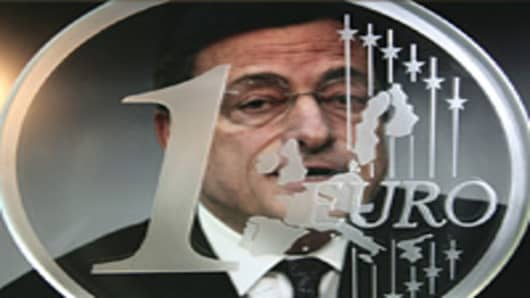It is one of the most complex and high-stakes plans ever launched by a central bank.
In an historic mix of monetary policy and fiscal politics, the European Central Bankplans to buy the short-term debt of troubled European governments if they enter a program to solve their debt and deficits problems.
Think of it as a program to help those who agree to help themselves.
ECB President Mario Draghi said today that the bank could make government bond purchases of “unlimited size” with maturities of one to three years in order to drive down interest rates paid by governments that are forced to pay high rates in the market.
In order to qualify for these purchases, a country must submit to an austerity program that would be monitored by other European nations and, potentially, the International Monetary Fund. (Read More:ECB to Buy Sovereign Bonds in New Program to Save Euro)
Under the plan, a country would apply to the European Financial Stability Fund for assistance. To be approved, it must come up with an agreed upon plan to lower its deficit and its debts and usually its spending. Once conditions are in place, Draghi said, the ECB can step in to purchase bonds, helping lower rates.
It sounds simple, except it is fraught with potential pitfalls.
For one, the ECB is specifically prohibited from financing the debts of member governments. To get around this, Draghi has argued that the ECB has a mandate to conduct a single monetary policy in the 17-member Euro area.
But widely divergent interest rates among those nations, he has argued, have hampered the ECB’s ability to provide a single monetary policy to the Eurozone. (German 10-years note yield2.2% but Spain’s yield 6%.) Several times, Draghi discussed the need to restore “the singleness of monetary policy in the Euro area.”




